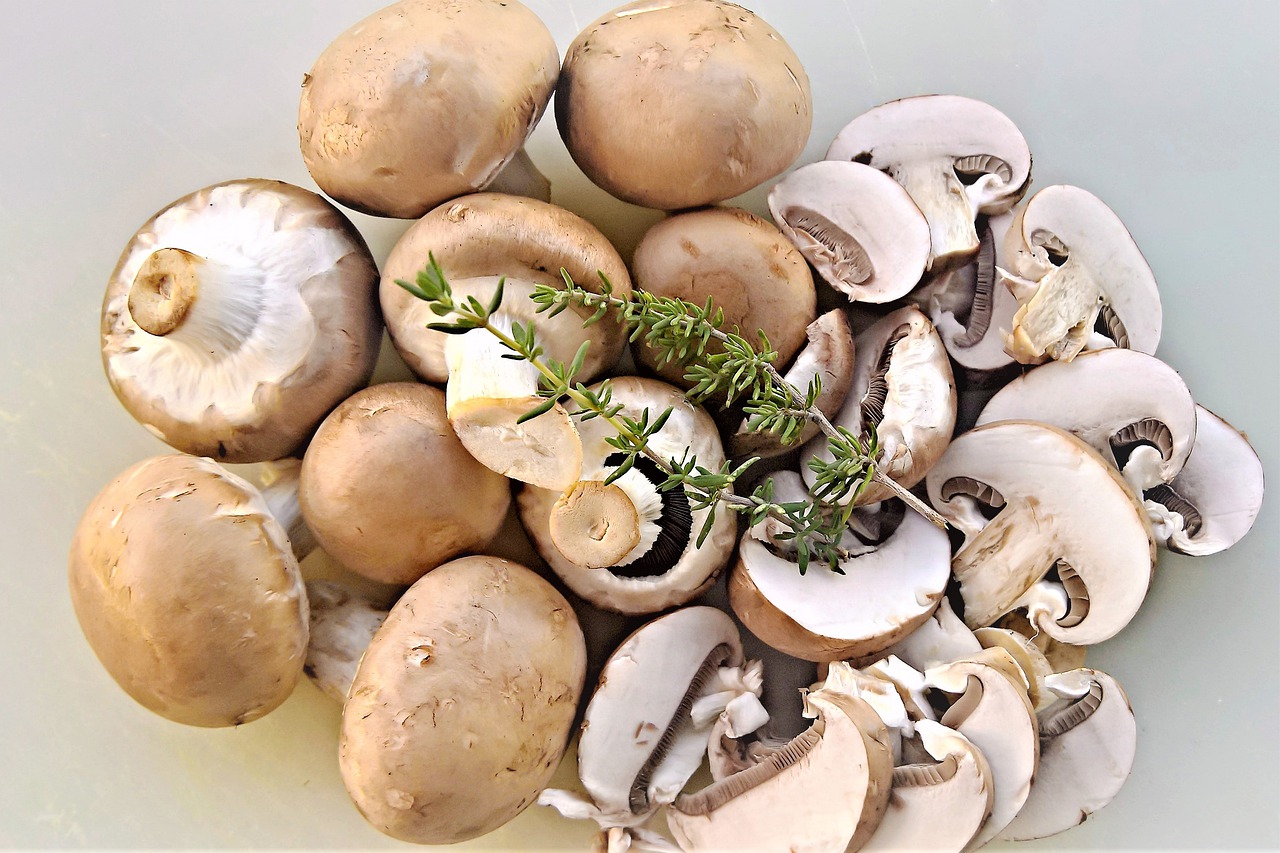Mushrooms tend to make people gassy because of naturally occurring compounds found in the fruiting bodies of fungi. This compound, called raffinose, passes through the small intestines without being fully digested.
The partial digestion of raffinose produces gas, which causes gas pain and bloating in some people. You might be wondering – why would raffinose produce gas if it’s related to sugar?
Well, the raffinose eventually travels to the large intestines or colon, where it begins to ferment. One of the byproducts of fermentation is gas, among other things. So if you are prone to gas pains and you are unable to tolerate gas pains, it would be best to steer clear of foods that can cause bloating as a result.
Some people tolerate raffinose fermentation, so they don’t have pains even though there’s more gas in the intestines than usual. However, this is not the case for everyone. Some people tend to produce more gas in food fermentation in the large intestines, which speeds up the bloating and causes more pain.
Can You Prevent Gassiness After Eating Mushrooms?
How to prevent gas from mushrooms? Generally speaking, no, you can’t stop gas formation after eating mushrooms. If you love mushrooms but keep getting gas pains, our recommendation would be to reduce your consumption of the offending food.
Don’t overdo the mushrooms when cooking, and be sure to avoid other foods that can cause gas as well. If you want to find some alternative food items that won’t cause gas, check out the list of vegetables below:
Vegetables that do not cause gas:
- Okra
- Zucchini
- Pumpkin
- Squashes
- Tomatoes
- Lettuce
In general, however, vegetables can cause gassiness because they have more naturally occurring dietary fiber. If you are gassy all the time, no matter what you eat, you may want to consult with a doctor about why it’s happening. The gassiness may be triggered by something else, like GERD or hyperacidity, or some other medical disorder affecting your digestive tract.
Will the Gas Hurt Your Body?
Bloating from gas is a symptom of an existing condition or an after-effect of an activity. This means you can probably avoid it if you know what triggers bloating in the first place. But as for the gas hurting your body permanently, it won’t because the body eventually takes care of excess gas by simply releasing it as flatulence. There may also be some confusion with the term “bloating,” so let’s clarify that.
A person can say that he is bloated after eating because he is filled with too much solid food. One can also claim to bloat if there is too much gas or too much liquid in the body. What’s important here is that you can identify the bloating source, so you don’t end up having so much pain, and you don’t know where it’s coming from in the first place.
Keep in mind that some people may have increased sensitivity to pain or digestive activity, and they may claim that they are bloated even if they aren’t in the first place. The perception of pain and discomfort is subjective, so you must be able to distinguish pain from the after-effects of heightened sensitivity to just about any stimuli.
If you want to reduce the impact of gassiness and bloating, you can do the following:
- Reduce your portions or servings. Eating too much can slow down your digestive tract, increase stomach acid production, and generally throw your digestive tract into a loop. Suppose you want to eat more, space out smaller meals, and eat more frequently throughout the day. Give your digestive system a chance to relax a bit before the next meal.
- Keep in mind that not all people who complain of bloating have symptoms of bloating. Sensory perception of physical events can influence how one feels. If you feel that you will bloat when eating a particular food item or drinking a certain beverage, avoid those instead.
- Don’t bolt your food; chew slowly. Chewing more slowly can give your brain sufficient time to detect if you are already full. Some people eat too much and then suffer from bloating because they consume more than what they can handle in a single sitting.
- Consult with your doctor should you have food allergies. Undetected and untreated food allergies can be a one-way ticket to severe bloating. Common food allergies include egg and egg product intolerance, wheat allergy, gluten intolerance, lactose intolerance, etc. Some people are even allergic to fructose, which is a naturally occurring sugar in fruits. This means that some people suffer from bloating because of natural sugars.
- Reduce the intake of gases. The most common source of excess gas in the digestive tract is fizzy beverages. Whether it’s soda or carbonated drinks, avoid these if you keep getting flatulence and gas pains.
- Like fatty pork and beef, some foods can reduce the smoothness and speed of digestion and cause problems with the gas release. If you really cannot tolerate these food items anymore, then avoid them completely.
- Some sugar alcohols are present in food that are sweetened with non-sugar additives. Be careful when consuming these as your body can react to these alcohols and eventually cause bloating.
Foods That Cause Gas and Bloating
If you want to minimize bloating, mushrooms and these foods can cause gas pain:
- Apples – This favorite summer fruit also contains sorbitol, which cannot be fully absorbed by people. It can cause digestive issues, especially in smaller children.
- Blackberries – Blueberries are also rich in sorbitol that can trigger bloating in some people.
- Watermelon – Watermelons, despite being light on the taste, are packed with natural sugars that can cause issues with people with allergy to fructose.

